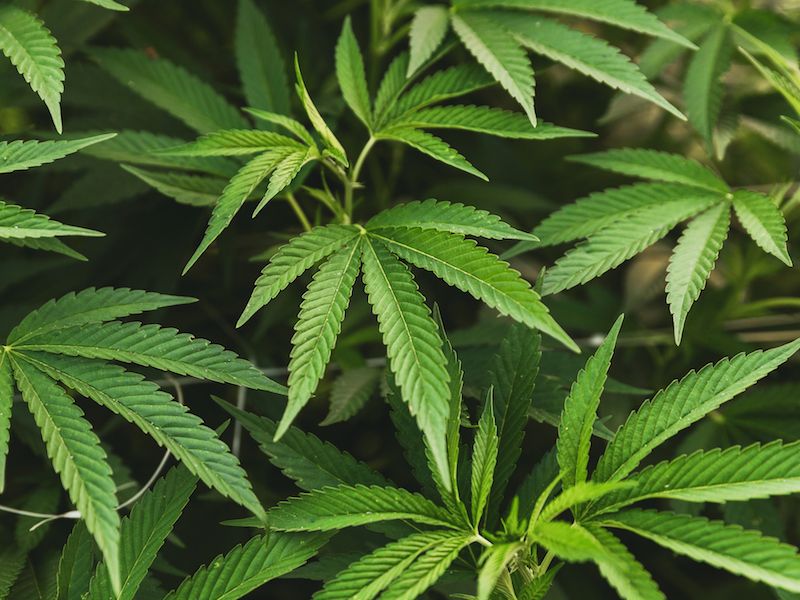
Public opinion about cannabinoids and marijuana have changed incredibly over the last few decades. Most states now allow the use of marijuana, THC, or cannabinoid compounds for medicinal purposes. Ten or fifteen years ago it would have been unthinkable for marijuana to be legal for recreational usage but some states have even taken this step.
Cannabinoids are identified as a group of substances derived from the cannabis or marijuana plant. New things are being uncovered about cannabinoids all the time in spite of their recent legalization in some states. Even though we now are starting to understand the numerous medical beneficial properties of these chemical substances, it has been recognized for some time that tinnitus might be brought about by cannabinoids.
Many Forms of Cannabinoids
These days, cannabinoids can be taken in lots of forms. It isn’t just weed (or ganja, or refer…..ok, there are a lot of nicknames for marijuana so let’s move ahead). Pills, oils, mists and other variations of cannabinoids are currently obtainable.
Each state has it’s own laws regarding which types of cannabinoids you can get, and many of those varieties are still officially illegal under federal law if the amount of THC is over 0.3%. So it’s still normal for people to be very careful about cannabinoids.
The issue is that we don’t yet grasp much concerning some of the long term side effects or complications of cannabinoid use. One example is the new information about how cannabinoids affect your hearing.
New Studies Into Cannabinoids And Hearing
A large number of illnesses and medical conditions are believed to be improved by cannabinoids, regardless of what you want to call it. Seizures, nausea, vertigo, and more seem to be improved with cannabinoids, according to available anecdotal information. So scientists resolved to find out if cannabinoids could help with tinnitus, too.
Tinnitus might actually be caused by cannabinoid use, as it turns out. Ringing in the ears was documented by over 29% of participants after using cannabinoids. And that’s in people who had never had tinnitus before. What’s more, marijuana users were 20-times more likely to report having tinnitus symptoms after 24 hours.
Additional research suggested that marijuana use could aggravate ear-ringing symptoms in people who already suffer from tinnitus. So, it seems fairly certain that cannabinoids and tinnitus aren’t very compatible.
How Cannabinoids worsen tinnitus
There are a couple of definite ways that cannabinoids can cause your tinnitus to get worse. The first is that your tinnitus can happen more frequently. Cannabinoids can also cause tinnitus symptoms to become more extreme. The discomfort from the ringing could get more intense or harder to ignore.
Cannabinoids have also been demonstrated to cause the onset of tinnitus symptoms. Or, stated another way: after you start using cannabinoids you could start to experience tinnitus symptoms even if you didn’t have them before.
It’s Still Unclear What Causes Tinnitus
Just because this connection has been discovered doesn’t inevitably mean the underlying causes are all that well grasped. That cannabinoids can have an impact on the middle ear and on tinnitus is pretty clear. But what’s causing that impact is much less obvious.
But we know that marijuana use, as opposed to other mood altering substances such as alcohol, can cause tinnitus.
Research, invariably, will continue. People will be enabled to make a practical choice as to which of the many forms of cannabinoid to go with as we gain deeper insight into their connection to tinnitus.
The Miracle Cure Beware
There has undeniably been no lack of marketing hype associated with cannabinoids in recent years. In part, that’s the result of changing mindsets surrounding cannabinoids themselves (and, to an extent, is also a reflection of a desire to move away from opioids). But cannabinoids can and at times do produce unwanted results, based upon this new research, and this is especially true concerning hearing.
You’ll never be able to avoid all of the cannabinoid fanatics and evangelists in the world, the marketing for cannabinoids has been extremely aggressive.
But tinnitus and cannabinoids are clearly connected based on this research. So if you suffer from tinnitus, or if you’re concerned about tinnitus it might be worth keeping away from cannabinoids if you can, no matter how many ads for CBD oil you might run into. It’s worth being careful when the link between cannabinoids and tinnitus has been so solidly established.